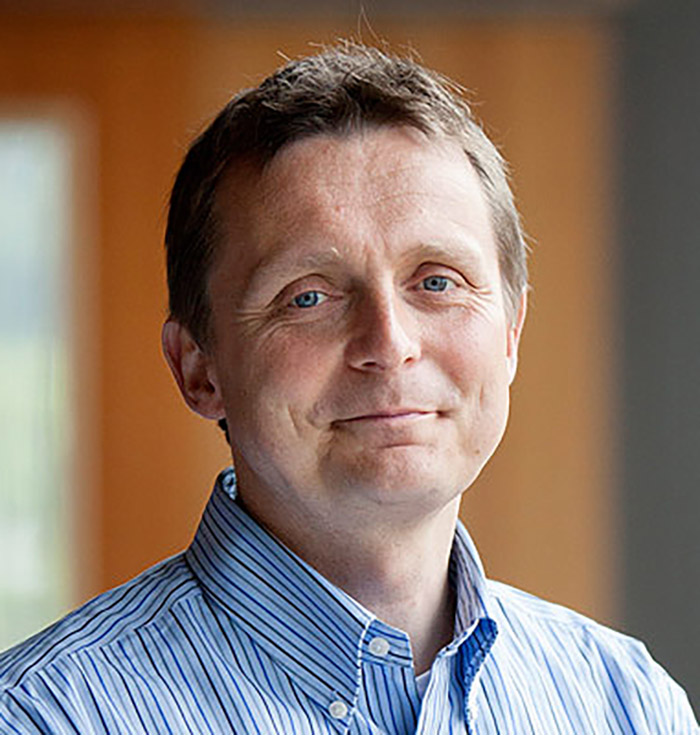By Kate Carter
To highlight major inflection points in research, the Vanderbilt School of Medicine Basic Sciences launched the Apex Lecture Series in 2023, which allows the Basic Sciences community to engage with researchers from around the world who are influencing the trajectory of their fields.

Michael Rapé, professor of cell and developmental biology and head of the Division of Molecular Therapeutics at the University of California, Berkeley, and expert in ubiquitin-dependent cell stress responses, will present the next Apex Lecture on Sept. 29. Rapé’s lecture will be co-sponsored by Vanderbilt’s Department of Biochemistry.
“Dr. Rapé is an exceptionally innovative scientist who has made field-changing discoveries about ubiquitin-dependent processes,” David Cortez, chair of the biochemistry department at Vanderbilt, said. “We are looking forward to learning about his latest scientific insights into cellular stress responses, including work towards developing new molecular therapeutics for degenerative diseases.”
Rapé’s interest in the effects of toxin exposure started at a young age. He grew up in Northern Bavaria, Germany, where there was heavy with air pollution. He began performing chemical experiments on plants using sulfur dioxide to study how the plants survived the air pollution.
Rapé studied biochemistry at the University of Bayreuth for his undergraduate degree and received a Ph.D. from the Max Planck Institute of Biochemistry. He later attended Harvard Medical School for postdoctoral work, and, in 2006, started his own lab at UC Berkeley.
He is now a leading ubiquitin researcher, a protein tag that is used to identify damaged proteins for destruction and is a vital process for nearly all eukaryotic organisms and cellular stress response systems. For his research on ubiquitin, Rapé was awarded the 2013 Vilcek Prize for Creative Promise in Biomedical Science and a 2016 Blavatnik National Award for Young Scientists, which is the largest award for early-career scientists in the U.S.
In addition to his teaching role at UC Berkeley, Rapé is the Dr. K. Hirth Chair of Cancer Biology. He is also an investigator at the Howard Hughes Medical Institute.
Lecture information:
Rapé will present his lecture, “Stress Signaling at the Crossroads of Development and Disease,” on Sept. 29 at 12:00 p.m. CDT in Light Hall room 202.
Abstract: Human development can withstand many mutational or environmental insults. Key to robust cell fate specification are signaling pathways that detect various stresses, such as nutrient limitation, oxidative damage, or toxin exposure, and in turn instigate reactions that either alleviate or bypass such conditions. How stress responses safeguard tissue formation and homeostasis is still poorly understood. We have recently discovered several stress responses with important roles in cell differentiation, including dimerization quality control, aggregate clearance, or the reductive stress response. These pathways ensure cell homeostasis by controlling processes as diverse as complex formation, protein aggregation, and mitochondrial activity. Using mitochondria as an example, I will describe how cells activate specific stress responses to ensure continuous organellar activity, and I will present our most recent work on active and tightly regulated silencing of these protective signaling networks. Our studies reveal how cells use stress response pathways to adjust organellar function to environmental or developmental needs, and they propose new therapeutic approaches to counteract degenerative disease caused by aberrant mitochondrial function or protein aggregation.